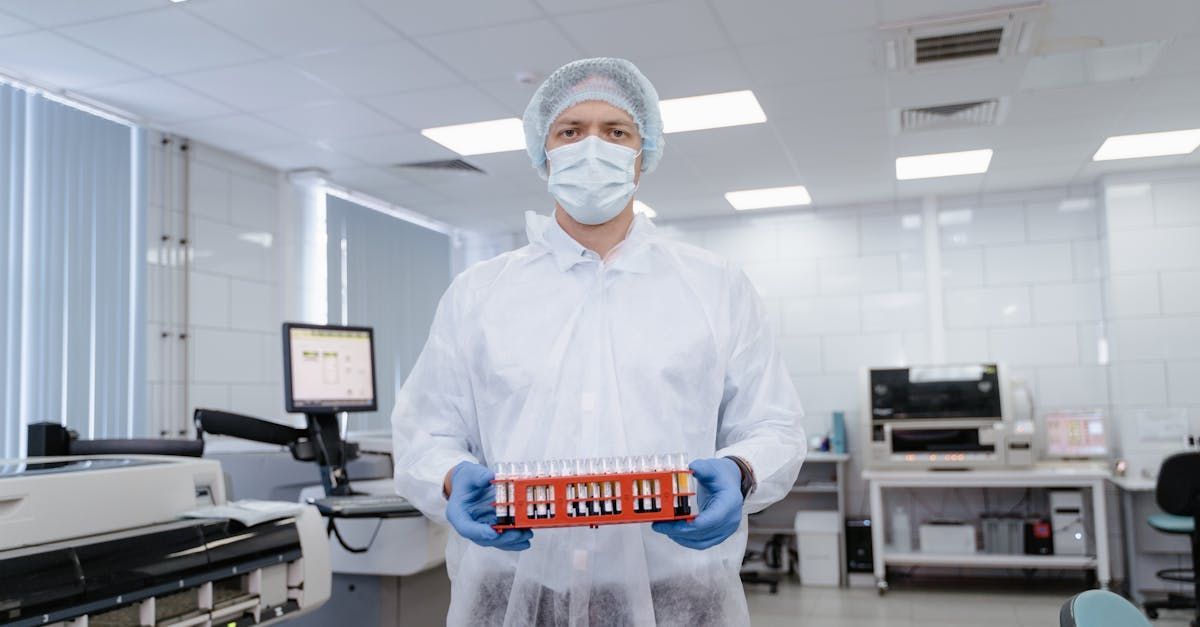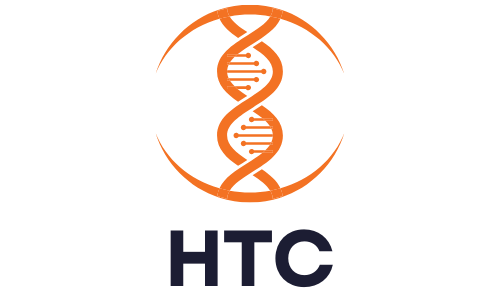The Impact of HealthTech on Pharmaceutical Manufacturing
Pharmaceutical manufacturing is a complex and highly regulated industry essential for producing medications that meet strict safety and efficacy standards. This industry involves the synthesis of chemical compounds, formulation development, quality control, and the mass production of pharmaceutical products. It is a cornerstone of global healthcare, providing the necessary drugs and therapies that improve and save lives.
Health technology (HealthTech) is revolutionizing pharmaceutical manufacturing by introducing innovative tools and methodologies that enhance efficiency, accuracy, and scalability. These technologies address longstanding challenges in the industry, such as high production costs, stringent regulatory requirements, and the need for rapid drug development. By integrating advanced technologies like artificial intelligence (AI), the Internet of Things (IoT), automation, and blockchain, HealthTech is poised to transform pharmaceutical manufacturing, making it more agile and responsive to market demands.
This blog aims to explore how HealthTech innovations are transforming pharmaceutical manufacturing and to highlight the investment opportunities these advancements present. We will delve into the specifics of various technologies, their benefits, and real-world applications, providing a comprehensive overview of the current landscape and future trends.
Understanding Pharmaceutical Manufacturing
Pharmaceutical manufacturing encompasses the entire process of drug production, from the initial discovery and development stages to the large-scale production and packaging of medications. This process includes:
- Drug Discovery and Development: Identifying and synthesizing new compounds that have therapeutic potential.
- Formulation Development: Creating the drug product in a form that can be administered to patients, such as tablets, capsules, or injectables.
- Quality Control and Assurance: Ensuring that the drug meets all regulatory standards for safety, efficacy, and quality.
- Mass Production: Scaling up the production process to manufacture large quantities of the drug.
Key Processes Involved in Pharmaceutical Manufacturing
Pharmaceutical manufacturing involves several critical processes, including:
- Chemical Synthesis: Creating the active pharmaceutical ingredient (API) through chemical reactions.
- Formulation and Compounding: Combining the API with excipients to create the final drug product.
- Packaging: Encasing the drug in appropriate containers to ensure stability and facilitate distribution.
- Quality Control: Conducting tests to ensure the drug meets all specifications and regulatory requirements.
Challenges Faced by the Pharmaceutical Manufacturing Industry
The pharmaceutical manufacturing industry faces numerous challenges, such as:
- High Costs: The development and production of new drugs require significant financial investment.
- Regulatory Compliance: Navigating complex regulatory requirements to ensure drug safety and efficacy.
- Supply Chain Management: Ensuring a reliable supply of raw materials and managing distribution logistics.
- Technological Complexity: Adapting to rapidly evolving technologies and integrating them into existing processes.
The Role of HealthTech in Pharmaceutical Manufacturing
HealthTech is addressing these challenges by introducing technologies that enhance every aspect of pharmaceutical manufacturing, from drug discovery to production and distribution. These innovations streamline processes, improve accuracy, and reduce costs, ultimately leading to better patient outcomes.
Artificial Intelligence (AI)
AI and machine learning algorithms analyze vast amounts of data to identify potential drug candidates, optimize manufacturing processes, and predict outcomes. These technologies enable faster and more accurate decision-making, reducing the time and cost associated with drug development.
Internet of Things (IoT)
IoT devices collect real-time data from manufacturing equipment and processes, enabling continuous monitoring and optimization. This data-driven approach improves efficiency, reduces downtime, and enhances product quality.
Automation
Automation technologies, including robotics and advanced manufacturing systems, streamline production processes and reduce human error. Automated systems can handle repetitive tasks with precision, increasing productivity and consistency.
Blockchain
Blockchain technology ensures transparency and security in the pharmaceutical supply chain. By providing a tamper-proof record of transactions, blockchain helps prevent counterfeiting, ensures product integrity, and facilitates regulatory compliance.
Examples of HealthTech Applications in Pharmaceutical Manufacturing
HealthTech applications in pharmaceutical manufacturing are numerous and varied. For example, AI-driven platforms like IBM Watson are used for drug discovery and development, while IoT devices monitor equipment performance and environmental conditions in real-time. Automation technologies, such as robotic arms and automated packaging systems, enhance production efficiency, and blockchain solutions like MediLedger ensure the integrity of the supply chain.
HealthTech Innovations in Pharmaceutical Manufacturing
AI and Machine Learning: Enhancing Drug Discovery and Development
AI and machine learning are transforming drug discovery and development by analyzing complex datasets to identify promising drug candidates and predict their efficacy. These technologies accelerate the research process, reduce costs, and increase the likelihood of successful outcomes.
IoT and Smart Manufacturing: Improving Efficiency and Monitoring
IoT devices collect and analyze data from manufacturing equipment, providing real-time insights into performance and efficiency. This continuous monitoring helps identify potential issues before they become critical, reducing downtime and improving product quality.
Automation and Robotics: Streamlining Production Processes
Automation and robotics streamline production processes by performing repetitive tasks with precision and consistency. Automated systems reduce human error, increase productivity, and enhance overall manufacturing efficiency.
Blockchain: Ensuring Supply Chain Transparency and Security
Blockchain technology provides a secure and transparent record of transactions throughout the pharmaceutical supply chain. This ensures the authenticity of products, prevents counterfeiting, and facilitates regulatory compliance.
Examples of Successful Implementations and Their Impact on Manufacturing Processes
Several companies have successfully implemented HealthTech solutions in their manufacturing processes. For example:
- Pfizer: Pfizer uses AI to streamline drug discovery and development, significantly reducing the time and cost associated with bringing new drugs to market.
- Novartis: Novartis employs IoT devices to monitor and optimize manufacturing processes, improving efficiency and product quality.
- Johnson & Johnson: Johnson & Johnson has integrated automation and robotics into their production lines, enhancing productivity and reducing human error.
- Roche: Roche utilizes blockchain technology to ensure the integrity of their supply chain, preventing counterfeiting and ensuring regulatory compliance.
Benefits of HealthTech in Pharmaceutical Manufacturing
Improved Efficiency and Productivity
HealthTech innovations improve efficiency and productivity by streamlining processes, reducing downtime, and optimizing resource use. Automated systems and real-time data monitoring enable manufacturers to produce more drugs in less time, reducing costs and increasing output.
Enhanced Quality Control and Compliance
HealthTech solutions enhance quality control by providing continuous monitoring and data analysis. This ensures that products meet all regulatory standards and reduces the risk of errors and defects. Blockchain technology also enhances compliance by providing a secure and transparent record of all transactions.
Cost Savings and Resource Optimization
HealthTech innovations reduce costs by optimizing resource use and improving efficiency. Automated systems and AI-driven processes minimize waste and reduce the need for manual labor, resulting in significant cost savings.
Accelerated Drug Development and Time-to-Market
AI and machine learning accelerate drug discovery and development by identifying promising candidates and predicting their efficacy. This reduces the time and cost associated with bringing new drugs to market, allowing manufacturers to respond more quickly to market demands.
Case Studies of HealthTech Solutions in Pharmaceutical Manufacturing
Case Study 1: AI-Driven Drug Discovery and Its Impact on Production
A pharmaceutical company used AI to analyze vast amounts of data and identify potential drug candidates. The AI platform significantly reduced the time and cost of drug discovery, leading to the successful development of a new treatment. This innovation not only improved efficiency but also increased the likelihood of successful outcomes.
Case Study 2: Implementation of IoT in Smart Manufacturing Facilities
A pharmaceutical manufacturer implemented IoT devices to monitor equipment performance and environmental conditions in real-time. This data-driven approach improved efficiency, reduced downtime, and enhanced product quality. The IoT solution also provided valuable insights for optimizing processes and resource use.
Case Study 3: Automation and Robotics in Pharmaceutical Production
A pharmaceutical company integrated automation and robotics into their production lines, streamlining processes and reducing human error. The automated systems performed repetitive tasks with precision and consistency, increasing productivity and enhancing overall manufacturing efficiency.
Lessons Learned from These Case Studies
These case studies demonstrate the significant benefits of HealthTech solutions in pharmaceutical manufacturing. By leveraging advanced technologies, companies can improve efficiency, enhance quality control, reduce costs, and accelerate drug development. However, successful implementation requires careful planning, continuous monitoring, and a commitment to innovation.
Challenges and Risks
Potential Challenges and Risks in Adopting HealthTech in Pharmaceutical Manufacturing
Despite the significant benefits, adopting HealthTech in pharmaceutical manufacturing presents several challenges and risks. These include:
- Technical and Operational Challenges: Implementing new technologies requires significant investment in infrastructure and training. Companies must also ensure compatibility with existing systems and processes.
- Regulatory and Compliance Hurdles: Navigating complex regulatory requirements can be challenging, particularly for new technologies. Companies must ensure compliance with all relevant regulations and standards.
- Cost and Accessibility Issues: The high cost of implementing advanced technologies can be a barrier, particularly for smaller companies. Ensuring equitable access to these technologies is also a concern.
Strategies for Overcoming These Challenges
To overcome these challenges, companies can:
- Invest in Training and Education: Providing comprehensive training for employees ensures they can effectively use new technologies.
- Collaborate with Regulatory Bodies: Working closely with regulatory agencies can help companies navigate compliance requirements and ensure their technologies meet all necessary standards.
- Leverage Partnerships and Collaborations: Collaborating with other companies, research institutions, and technology providers can help share the costs and risks associated with implementing new technologies.
Investment Opportunities in HealthTech for Pharmaceutical Manufacturing
Identifying Promising HealthTech Companies and Technologies for Pharmaceutical Manufacturing
Investors should look for companies with strong research pipelines, experienced management teams, and a track record of innovation. Promising technologies include AI-driven drug discovery platforms, IoT-enabled smart manufacturing solutions, advanced automation and robotics systems, and blockchain solutions for supply chain management.
Factors to Consider When Investing in This Field
When investing in HealthTech for pharmaceutical manufacturing, consider factors such as:
- Market Potential: Assess the market demand for the technology and its potential for growth.
- Regulatory Environment: Understand the regulatory landscape and ensure the company can navigate compliance requirements.
- Technology Maturity: Evaluate the technology's readiness for commercial use and its compatibility with existing systems.
- Financial Stability: Assess the company's financial health and its ability to sustain long-term growth.
Long-Term vs. Short-Term Investment Strategies
Investing in HealthTech for pharmaceutical manufacturing often requires a long-term perspective due to the lengthy development and approval timelines for new technologies. However, short-term opportunities may arise from partnerships, acquisitions, or regulatory approvals.
Examples of Recent Investments and Their Outcomes
Recent investments in HealthTech for pharmaceutical manufacturing have yielded significant returns. For example, venture capital firms have invested in AI-driven drug discovery platforms, resulting in the development of promising new treatments. Similarly, investments in IoT-enabled smart manufacturing solutions have improved efficiency and product quality, leading to increased profitability.
Future Trends and Innovations
Emerging Trends and Future Directions in HealthTech for Pharmaceutical Manufacturing
Emerging trends in HealthTech for pharmaceutical manufacturing include:
- Advanced AI and Machine Learning: Continued advancements in AI and machine learning will further enhance drug discovery, development, and manufacturing processes.
- Integration of IoT and Blockchain: Combining IoT and blockchain technologies will enhance supply chain transparency, security, and efficiency.
- Personalized Medicine: Advances in genetic testing and personalized treatment approaches will drive the development of targeted therapies.
- Sustainable Manufacturing: Innovations in sustainable manufacturing practices will reduce the environmental impact of pharmaceutical production.
The Impact of Technological Advancements on Pharmaceutical Manufacturing
Technological advancements will continue to transform pharmaceutical manufacturing, making it more efficient, agile, and responsive to market demands. These innovations will improve product quality, reduce costs, and accelerate drug development, ultimately benefiting patients and healthcare systems worldwide.
Predictions for the Next Decade in HealthTech for Pharmaceutical Manufacturing
Over the next decade, we can expect to see:
- Increased Adoption of AI and Automation: AI and automation technologies will become integral to pharmaceutical manufacturing, enhancing efficiency and accuracy.
- Expansion of IoT-Enabled Smart Manufacturing: IoT devices will be widely used to monitor and optimize manufacturing processes in real-time.
- Widespread Implementation of Blockchain: Blockchain solutions will ensure supply chain transparency and security, preventing counterfeiting and ensuring regulatory compliance.
- Growth of Personalized Medicine: Personalized treatment approaches will become more prevalent, driven by advances in genetic testing and data analytics.
Conclusion
HealthTech innovations are transforming pharmaceutical manufacturing, addressing longstanding challenges and improving efficiency, quality, and cost-effectiveness. Technologies such as AI, IoT, automation, and blockchain are driving significant advancements in drug discovery, development, and production.
The integration of HealthTech into pharmaceutical manufacturing holds immense potential for improving patient outcomes, enhancing operational efficiency, and reducing costs. By embracing these technologies, pharmaceutical companies can stay competitive in a rapidly evolving industry and meet the growing demand for safe and effective medications.
Investing in HealthTech solutions for pharmaceutical manufacturing presents significant opportunities for financial returns and social impact. By supporting innovative companies and technologies, investors can contribute to the advancement of healthcare and improve the lives of millions of patients worldwide.










